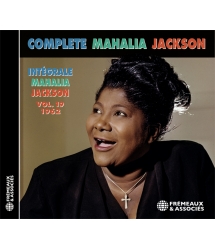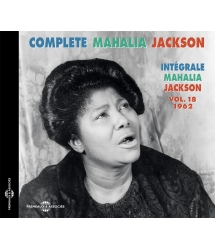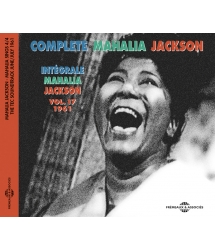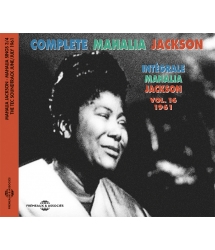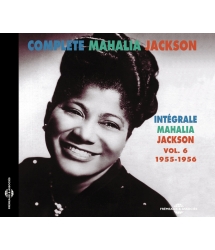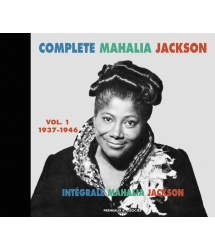- Our Catalog
- Philosophy
- Philosophers of the 20th century and today
- History of Philosophy (PUF)
- Counter-History and Brief Encyclopedia by Michel Onfray
- The philosophical work explained by Luc Ferry
- Ancient thought
- Thinkers of yesterday as seen by the philosophers of today
- Historical philosophical texts interpreted by great actors
- History
- Books (in French)
- Social science
- Historical words
- Audiobooks & Literature
- Our Catalog
- Jazz
- Blues
- Rock - Country - Cajun
- French song
- World music
- Africa
- France
- Québec / Canada
- Hawaï
- West Indies
- Caribbean
- Cuba & Afro-cubain
- Mexico
- South America
- Tango
- Brazil
- Tzigane / Gypsy
- Fado / Portugal
- Flamenco / Spain
- Yiddish / Israel
- China
- Tibet / Nepal
- Asia
- Indian Ocean / Madagascar
- Japan
- Indonesia
- Oceania
- India
- Bangladesh
- USSR / Communist songs
- World music / Miscellaneous
- Classical music
- Composers - Movie Soundtracks
- Sounds of nature
- Our Catalog
- Youth
- Philosophy
- News
- How to order ?
- Receive the catalog
- Manifesto
- Dictionnary











- Our Catalog
- Philosophy
- Philosophers of the 20th century and today
- History of Philosophy (PUF)
- Counter-History and Brief Encyclopedia by Michel Onfray
- The philosophical work explained by Luc Ferry
- Ancient thought
- Thinkers of yesterday as seen by the philosophers of today
- Historical philosophical texts interpreted by great actors
- History
- Books (in French)
- Social science
- Historical words
- Audiobooks & Literature
- Our Catalog
- Jazz
- Blues
- Rock - Country - Cajun
- French song
- World music
- Africa
- France
- Québec / Canada
- Hawaï
- West Indies
- Caribbean
- Cuba & Afro-cubain
- Mexico
- South America
- Tango
- Brazil
- Tzigane / Gypsy
- Fado / Portugal
- Flamenco / Spain
- Yiddish / Israel
- China
- Tibet / Nepal
- Asia
- Indian Ocean / Madagascar
- Japan
- Indonesia
- Oceania
- India
- Bangladesh
- USSR / Communist songs
- World music / Miscellaneous
- Classical music
- Composers - Movie Soundtracks
- Sounds of nature
- Our Catalog
- Youth
- Philosophy
- News
- How to order ?
- Receive the catalog
- Manifesto
- Dictionnary
1956
MAHALIA JACKSON
Ref.: FA1317
Artistic Direction : JEAN BUZELIN
Label : Frémeaux & Associés
Total duration of the pack : 1 hours 8 minutes
Nbre. CD : 1
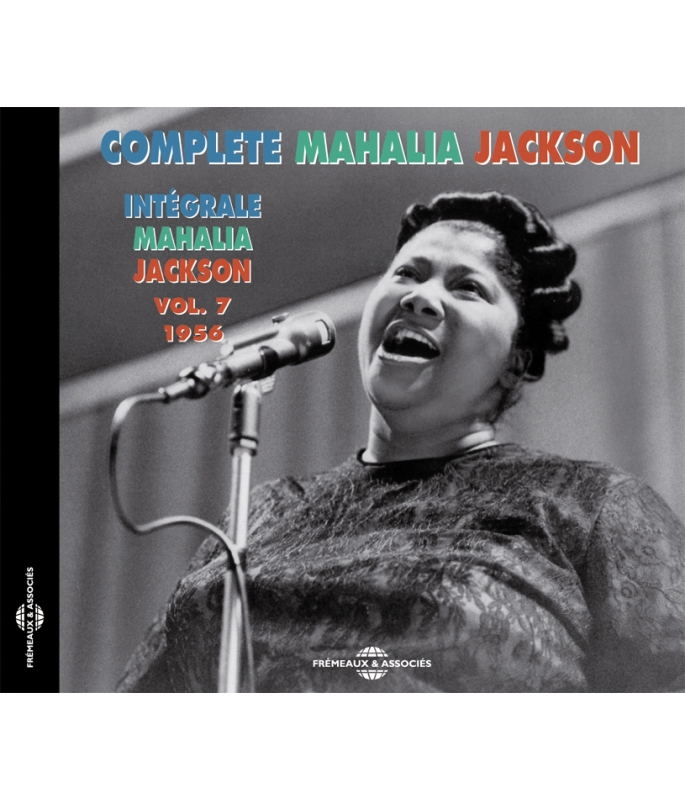
1956
1956
The “greatest Gospel singer in the world”, as she is always referred to, is featured on these magnificent recordings at the very summit of her art, her voice equal to any other in whatever musical genre.
-
PisteTitleMain artistAutorDurationRegistered in
-
1The Lord's PrayerJackson MahaliaTraditionnel00:03:511956
-
2Down By The RiversideJackson MahaliaTraditionnel00:03:351956
-
3Trouble In My WayJackson Mahalia00:04:081956
-
4Summertime Sometimes I Feel Like A Motherless ChilJackson Mahalia00:06:431956
-
5By His WordJackson MahaliaHuntley00:01:531956
-
6Standing Here Wondering Wich Way To GoJackson MahaliaDorsey T.A.00:03:271956
-
7Let The Church Roll OnJackson MahaliaTraditionnel00:01:421956
-
8An Evening PrayerJackson MahaliaBattersby00:02:301956
-
9Dod Knows The Reason WhyJackson MahaliaAnderson R.00:03:561956
-
10Take My Hand Precious LordJackson MahaliaDorsey T.A.00:04:151956
-
11Just Like A Little While To Stay HereJackson MahaliaTraditionnel00:03:471956
-
12Bless This HouseJackson MahaliaBrahe00:04:111956
-
13Trouble Of The WorldJackson MahaliaTraditionnel00:04:471956
-
14It Dont Cost Very MuchJackson MahaliaDorsey T.A.00:02:131956
-
15A Star Stood StillJackson MahaliaRuth B.00:03:421956
-
16Mary's Little Boy ChildJackson MahaliaHairston J.00:03:061956
-
17I ComplainedJackson MahaliaRam B.00:02:351956
-
18The Man Beyond The CloudsJackson MahaliaTraditionnel00:03:431956
-
19God Is So Good To MeJackson MahaliaAkers D.00:04:221956
INTÉGRALE MAHALIA JACKSON VOL. 7
COMPLETE MAHALIA JACKSON
INTÉGRALE MAHALIA JACKSON VOL. 7 1956
En ce début de printemps 1956, Mahalia Jackson se trouve à New York pour enregistrer. Quatre morceaux essayés le 7 mars ne sont pas conservés, et, parmi les trois mis en boîte le 19, seul ‘Round The Rainbow, qui terminait notre précédent volume, sera publié (1). Après avoir été reçue à la Maison-Blanche le 23 pour l’anniversaire de Madame Eisenhower, la chanteuse retourne en studio le 26. Elle est accompagnée par sa fidèle pianiste Mildred Falls et son organiste Ralph Jones, qui l’accompagne depuis ses débuts chez Columbia, auxquels se sont joints une rythmique de jazz renommée : Milton Hinton à la contrebasse et Gus Johnson à la batterie. Voilà qui nous sort des orchestrations pompeuses et grandiloquentes qui lui ont été imposées lors de la plupart de ses séances de l’année précédente, et dont, fort heureusement, un certain nombre de titres enregistrés une première fois n’ont pas été conservés. Cinq morceaux essayés ne sont pas retenus. Ils seront repris le lendemain lors d’une longue session qui produira quinze plages, toutes publiées sauf une, My God And I (matrice CO55701-2) (2). The Lord’s Prayer (essayé le 4 août 1955) et Bless This House, enregistrés sans la rythmique, avaient déjà été gravés le 17 octobre 1950, lorsque la chanteuse était chez Apollo (3). Couplés sur le microsillon 45 tours EP 2603, ils présentent Mahalia à son maximum d’intensité et d’expression. On peut considérer ces reprises, plus longues, majestueuses voire grandioses, comme supérieures aux versions originales, ce qui n’a pas toujours été le cas. Enregistrés une première fois le 3 novembre 1955 (1), Down By The Riverside et Trouble In My Way (4) sont repris sous le même numéro de matrice, mais dans des interprétations un peu plus lentes et bien meilleures, surtout côté rythmique. Le superbe medley Summertime/Sometimes I Feel Like A Motherless Child, rejeté lors de cette même séance de novembre 55, est cette fois-ci retenu. Mahalia en fait une œuvre “définitive” qui montre la filiation qu’il y a entre le célèbre negro spiritual et l’adaptation musicale qu’en a tiré George Gerswhin pour son opéra “Porgy and Bess”. Enfin, Mahalia peut enregistrer la composition de Thomas A. Dorsey, Take My Hand Precious Lord qu’elle chanta maintes fois dans les années 40 avec le compositeur au piano, et qu’on lui refusait inexplicablement depuis son arrivée chez Columbia. Elle a donc fini par convaincre ses producteurs de lui laisser enregistrer cette œuvre qui lui tenait tant à cœur, et qui reste l’une des favorites de la communauté noire américaine. Elle en donne une interprétation magnifique, sans doute l’une des plus fortes et poignantes parmi les dizaines et dizaines de versions de toutes sortes que le disque nous a laissés. Deux autres pièces de Dorsey figurent au programme : Standing Here Wondering Which Way To Go, une gospel waltz lente répétée le 7 mars, et le bluesy It Don’t Cost Very Much, qu’on lui avait également refusée jusqu’à présent. Un groupe vocal masculin l’accompagne dans By His Word et Let The Church Roll On, deux spirituals traditionnels très entraînants. Il est placé sous la direction de James Cleveland, la future star du gospel moderne, alors pianiste des Caravans, ensemble féminin de renom. An Evening Prayer, hymne gospel écrit en 1911, non retenu lors de la séance ‘Round The Rainbow, sera publié avec ce dernier titre (40712), tandis que The Lord’s Prayer sera couplé une seconde fois, avec Precious Lord (40753). God Knows The Reason Why (de son ami Robert Anderson), et les negro spirituals traditionnels Just A Little While et Trouble Of The World complètent cette séance copieuse et superbe qui fait entendre Mahalia Jackson à son sommet ; cette dernière pièce, notamment, permet d’apprécier particulièrement sa diction claire, son articulation parfaite et l’ampleur de sa voix (5). Ces quatorze plages, réunies pour la plupart sur l’album Columbia LP 899 “Bless This House”, apparaissent d’un niveau au moins équivalent à ses meilleures faces Apollo, et demeurent parmi les plus belles et les plus fortes que nous a laissées la chanteuse. Aux côtés de Mildred Falls et de Ralph Jones, Milt Hinton et Gus Johnson accompagnent ces chants avec le savoir-faire, le swing et la retenue de ceux qui ont grandi avec ces musiques. Remarquons toutefois que, si le piano est très présent, l’orgue, en général capté, ou mixé, à l’arrière-plan, est beaucoup plus discret que lors des enregistrements Apollo. Ce qui permet encore mieux de suivre le jeu de la pianiste, ainsi que l’écrit Tony Heilbut : “Miss Falls est peut-être la seule pianiste qui comprend complètement, et arrive même à anticiper tous les changements de moods et de rythmes de la chanteuse”.
Entre les séances d’enregistrements, les émissions de radio et de télévision — elle participe pour la première fois au très populaire “Ed Sullivan Show” — Mahalia Jackson effectue des tournées avec sa pianiste Mildred Falls. La “Reine du Gospel” est désormais entrée dans le cercle du show business américain. Ce qui n’empêche pas le public blanc, surtout dans le Sud, qui vient l’applaudir et l’acclamer lors des concerts qui lui sont réservés, de ne pas remettre en cause le système de la ségrégation : les salles ne sont pas mixtes, et Mahalia, toute immense vedette qu’elle est, ne peut dormir dans un hôtel blanc ! Durant l’été 1956, Mahalia Jackson reçoit la visite du révérend Ralph D. Abernathy, de Montgomery (Alabama), bras droit du Dr Martin Luther King et militant actif du Mouvement des Droits Civiques. Il sollicite le concours de la chanteuse. En effet, la St-John A.M.E. Church de Montgomery veut honorer Rosa Parks (6) et le boycott des transports qui a suivi et a désorganisé la ville. Il lui annonce qu’il organise un séminaire sur la protestation non-violente et les changements revendiqués de la politique sociale. Abernathy lui demande de participer au programme avec un intermède musical de son choix. La réponse de Mahalia est nette : “D’accord, mais je ne viens pas à Montgomery pour profiter de ces gens qui marchent !” (5) La manifestation est prévue en décembre. Entre temps, Mahalia donne son sixième concert au Carnegie Hall de New York. Présentée par Duke Ellington lui-même, elle chante notamment Bless This House. Le 22 septembre, Mahalia Jackson, alors sur la côte Ouest, participe à une séance d’enregistrement à Hollywood. Au quartette piano-orgue-basse-batterie s’ajoutent une chorale masculine et, paraît-il, un violon, sans doute noyé dans la masse car sa présence est on ne peut plus discrète. A Star Stood Still et Mary’s Little Boy Child s’inscrivent beaucoup plus dans la lignée des chants de Noël (1) que dans celle des negro spirituals authentiques. En particulier les cloches qui introduisent le premier cantique, sous-titré Song Of The Nativity, sonnent bien peu “noires”.
Trois autres pièces, non retenues, sont reprises six jours plus tard lorsque la chanteuse est rentrée à Chicago (7). La formation qui l’accompagne est semblable, et les chœurs se manifestent dans I Complained, un “slow” signé par les auteurs de… Only You (!), et dans The Man Beyond The Clouds. S’étant bagarrée, une fois de plus, avec son producteur Mitch Miller qui ne loupe pas une occasion de lui faire enregistrer des pop songs, elle réussi à faire taire la chorale pour attaquer God Is So Good, très beau gospel song écrit et créé par la chanteuse Doris Mae Akers. Ce superbe morceau en 3/4 qui comprend un récitatif au milieu, relève largement le niveau de ces deux petites séances non mémorableset offre, par la même occasion, un beau final à notre CD. D’ailleurs ses amis disc-jockeys ne s’y trompent pas quand paraît le disque (40854, couplé avec I Complained) : “There’s Mahalia again ! (Mahalia est de retour)” s’exclament-ils. Après ce dernier apport discographique, Mahalia attendra le mois de juin 1957 pour retourner dans ces mêmes studios de Chicago. En novembre, elle participe à New York au “Nat King Cole Show” télévisé. Montgomery, le jeudi 6 décembre 1956 ; les gens arrivent en masse à l’église St-John. Les conditions précaires de sécurité affolent un peu Mahalia. Accompagnée par la fidèle Mildred Falls, elle chante City Called Heaven, God Is So Good To Me, Move On Up A Little Higher… Face à l’enthousiasme général, le concert se prolonge tard et, pour calmer enfin une assistance “électrique”, la chanteuse termine avec Silent Night. De là, Mahalia rend visite à sa famille à la Nouvelle-Orléans, sa ville natale, où elle participe à une émission de télévision, puis retrouve son frère Johnny Jackson à Los Angeles, avec lequel elle passe les fêtes de fin d’année. Pendant ce temps-là, à Montgomery, une bombe fait sauter la devanture de la maison où Ralph Abernathy et sa femme Juanita sont en train de dormir. La bataille contre la ségrégation raciale commence seulement…
Jean BUZELIN
Auteur de Negro Spirituals et Gospel Songs,
Chants d’espoir et de liberté
(Ed. du Layeur/Notre Histoire, Paris 1998).
© 2009 Frémeaux & Associés
Notes :
1. Voir Complete Mahalia Jackson Vol. 6 (FA 1306).
2. Il n’est pas impossible que les quatre premiers titres de ce volume 7 aient été enregistrés le 26.
3. Voir Complete Mahalia Jackson Vol. 3 (FA 1303).
4. Rappelons que ce Trouble In My Way, composé par Roberta Martin, est une pièce totalement différente de celle créée par les Dixie Hummingbirds et reprise avec succès par les Swan Silvertones en 1952, et qui porte le même titre.
5. Mahalia donnera une interprétation bouleversante de Trouble Of The World dans le film de Douglas Sirk, “Imitation of Life” (“Le Mirage de la vie”), en 1958.
6. On se souvient que Rosa Parks, en 1955, refusa de céder sa place à un voyageur blanc dans un autobus.
7. Il est toutefois possible que ces deux séances aient eu lieu soit à Hollywood, soit à Chicago.
Ouvrages consultés :
Laurraine Goreau : Mahalia (Lion Pub., UK 1976 - 2e édition)
Jules Schwerin : God To Tell It : Mahalia Jackson (Oxford University Press, 1992) Anthony Heilbut : The Gospel Sound (Limelight Ed., NYC 1992 -
4e édition) Cedric J. Hayes & Robert Laughton : Gospel Discography 1943-1970 (Eyeball Productions, Inc., 2007).
Nous remercions nos fidèles amis Friedrich Mühlöcker, Étienne Peltier et Robert Sacré pour le prêt de certains disques rares de leur collection.
Photos & collections : André Clergeat, X (D.R.).
English notes
COMPLETE MAHALIA JACKSON - VOL. 7 1956
In early spring 1956 we find Mahalia Jackson recording in New York. Four titles tried out on March 7 were not retained and of the three recorded on the 19th only Round The Rainbow, with which we closed our preceding volume, was issued (1). After having been welcomed at the White House on the 23rd for the birthday of Mrs. Eisenhower, the singer returned to the studios on the 23rd. She was accompanied by her regular pianist Mildred Falls and organist Ralph Jones who had accompanied her since her debuts with Columbia, plus the renowned rhythm section of Milton Hinton on bass and Gus Johnson on drums. At last she had escaped the pompous and grandiose orchestrations imposed on her for most of her sessions the preceding year of which, luckily, some takes were not preserved.
Five titles were re-cut the following day during a long session that resulted in fifteen tracks, all of which were issued except My God And I (matrix CO55701-2) (2). The Lord’s Prayer (tried August 4 1955) and Bless This House, recorded without a rhythm section, had already been recorded October 17 1950 when the singer was still with Apollo (3). Issued together on the 45 rpm EP2603, they show Mahalia at the height of her emotional power. These longer, more majestic reprises are better by far than the original versions, which was not always the case. First recorded on November 3 1955 (1), Down By The Riverside and Trouble In My Way (4) were reprised under the same matrix number, but in a slightly slower and far superior interpretation, especially with regard to the rhythm section. The superb medley Summertime/Sometimes I Feel Like A Motherless Child, rejected during the November 1955 session, was kept this time. Mahalia’s is a definitive interpretation of the well known Negro spiritual, merged with George Gershwin’s adaptation for “Porgy and Bess”. Finally, she was given the opportunity to record Thomas A Dorsey’s Take My Hand Precious Lord that she had sung countless times in the 40s, with the composer on piano, but that for some unexplained reason she had never been allowed to record since her arrival at Columbia. She finally managed to convince the producers to let her record this titles that was so dear to her heart and also a favourite with black audiences. This magnificent interpretation is undeniably one of the most powerful and poignant of the dozens recorded. Two more Dorsey compositions were part of the programme: the slow Gospel waltz Standing Here Wondering Which Way To Go rehearsed on March 7 and It Don’t Cost Very Much that she also hadn’t been allowed to record previously. On the two rousing traditional spirituals By His Word and Let The Church Roll On she is backed by a male vocal group, led by future modern Gospel star James Cleveland, pianist with the famous female group the Caravans. An Evening Prayer, a gospel hymn written in 1911, rejected from the Round The Rainbow session, was published with the latter title (40712), while The Lord’s Prayer was issued a second time with Precious Lord (40753). God Knows The Reason Why (by her friend Robert Anderson) and the traditional spirituals Just A Little Why and Trouble Of The World complete this extensive and superb session that features Mahalia Jackson at the height of her powers. The latter title in particular is a remarkable example of her clear diction, perfect articulation and vocal breadth (5). These fourteen tracks, most of them collected on the Columbia album (LP 899), “Bless This House”, are on a par with her best Apollo recordings and remain some of the most beautiful and powerful that she has bequeathed us. Alongside Mildred Falls and Ralph Jones, Milt Hinton and Gus Johnson provide the laid back, swinging backing of those completely at home with this type of music. Yet, while the piano is always to the fore, the organ is generally in the background and its presence is much more discreet than on the Apollo recordings. This enables a clearer appreciation of the pianist, as Tony Heilbut remarks: “Miss Falls is perhaps the only pianist who completely understands and anticipates Mahalia’s shifting moods and rhythms.” Between recording sessions and radio and television shows – she made her first appearance on the popular “Ed Sullivan Show” – Mahalia Jackson continued to tour with her pianist Mildred Falls. The “Queen of Gospel” was now part of the American show business milieu. However, although her concerts, reserved for white audiences in the South, were warmly applauded, this had no effect on their attitude to segregation: audiences were never mixed and Mahalia, in spite of being such a huge star, could never sleep in a whites-only hotel !
During the summer of 1956 Mahalia Jackson received a visit from the Reverend Ralph D. Abernathy from Montgomery; Alabama, Dr. Martin Luther King’s right hand man and an active member of the Civil Rights movement. He was looking for the singer’s support. The St. John A.M.E. Church in Montgomery wanted to honour Rosa Parks (6) and the ensuing bus boycott that had disrupted the whole town. He was organising a meeting on non-violent protest and wanted her to take part with her own choice of music. Mahalia’s reply was absolutely clear: “Yes, but I ain’t coming to Montgomery to make no money of them walkin’ folks!” (5) The demonstration was planned for December. Meanwhile, Mahalia gave her sixth concert at New York’s Carnegie Hall. Introduced by Duke Ellington himself she sang Bless This House among other titles. On September 22, while on the West Coast, Mahalia took part in a recording session in Hollywood. In addition to a piano/organ/bass/drums quartet and a male voice choir, it appears there was also a violin, although this seems to have been drowned out in the general mass. A Star Stood Still and Mary’s Little Boy Child are Christmas carols rather than authentic Negro spirituals. In particular, the bells that introduce the opening Song Of The Nativity appear to have little in common with the black tradition.
Three other rejected titles were reprised six days later when the singer returned to Chicago (7). She was accompanied by a similar formation and the choirs are evident on I Complained, a “slow” by the composers of Only You (!) and on Man Beyond The Clouds. After yet, after another fight with her producer Mitch Miller who never missed a chance to get her to record pop songs, she succeeded in getting rid of the choir on God Is So Good, a beautiful gospel song written and created by the vocalist Doris Mae Akers. This superb piece in 3/4 time, with its recitation in the middle, raises the tone of these two small and easily forgettable sessions and, at the same time, provides a fitting end to this CD. Moreover, our friends the DJs realised this as soon as the record was released (40854, backed by I Complained): “There’s Mahalia again!” they exclaimed. After this Mahalia had to wait until June 1957 before returning to the same Chicago recording studios. In November she appeared on the “Nat King Cole Show” televised in New York.
Montgomery, Thursday December 6 1956: crowds of people gathered at the St. John Church where Mahalia was somewhat scared by the apparent lack if security. Accompanied as ever by Mildred Falls she sang City Called Heaven, God Is So Good To Me, Move On Up A Little Higher… As a result of the general enthusiasm the concert went on late and, finally, to satisfy the clamours of the audience, she closed with Silent Night. From here Mahalia went on to visit her family in New Orleans, her birth place, where she took part in a TV programme and then joined her brother Johnny Jackson in Los Angeles, where she spent New Year. Meanwhile, in Montgomery, a bomb destroyed the front of the house where Ralph Abernathy and his wife Juanita were asleep. The fight against segregation was only just beginning …
Adapted from Jean BUZELIN’S
French text by Joyce WATERHOUSE
© 2009 Frémeaux & Associés
Notes:
1. See Complete Mahalia Jackson Vol. 6 (FA 1306).
2. It is possible that the first four titles on this Vol. 7 were recorded on the 26th.
3. See Complete Mahalia Jackson Vol. 3 (FA 1303).
4. Note that this Trouble In My Way, composed by Roberta Martin, is a completely different piece from that created by the Dixie Hummingbirds and successfully reprised by the Swan Silvertones in 1952, and which has the same title.
5. Mahalia gives a deeply moving interpretation of Trouble Of The World in Douglas Sirk’s film, “Imitation of Life” in 1958.
6. In 1955 Rosa Parks refused to give up her seat to a white passenger on a bus.
7. It is however possible that these two sessions took place either in Hollywood or in Chicago.
Works consulted:
Laurraine Goreau: Mahalia (Lion Pub. UK 1976 – 2nd edition)
Jules Schwerin: God To Tell It: Mahalia Jackson (OUP 1992).
Anthony Heilbut: The Gospel Sound (Limelight Ed. NYC 1992 – 4th edition)
Cedric J. Hayes & Robert Laughton: Gospel Discography 1943-1970 (Eyeball Productions. Inc., 2007).
With grateful thanks to Friedrich Mühlöcker, Etienne Peltier and Robert Sacré for the loan of some rare records from their collections.
Photos & collections: André Clergeat, X (D.R.).
Discographie
1. THE LORD’S PRAYER (A.H. Malotte)... CO5590-2
2. DOWN BY THE RIVERSIDE (trad.)... CO53949-2
3. TROUBLE IN MY WAY (Kenwood - R. Martin)... CO53950-3
4. SUMMERTIME/ (G. & I. Gershwin - D. Heyward) SOMETIMES I FEEL LIKE A MOTHERLESS CHILD (Trad.)... CO53953-2
5 BY HIS WORD (Huntley - Campbell)... CO55698-2
6. STANDING HERE WONDERING WHICH WAY TO GO (T.A. Dorsey)... CO55699-2
7. LET THE CHURCH ROLL ON (Trad. - arr. M. Jackson)... CO55700-2
8. AN EVENING PRAYER (DEAR LORD FORGIVE) (C.M. Battersby - C.H. Gabriel)... CO55822-2
9. GOD KNOWS THE REASON WHY (R. Anderson)... CO55837
10. TAKE MY HAND PRECIOUS LORD (T.A. Dorsey)... CO55838
11. JUST A LITTLE WHILE TO STAY HERE (Trad.)... CO55839
12. BLESS THIS HOUSE (Brahe - Taylor)... CO55840
13. TROUBLE OF THE WORLD (Trad.)... CO55841
14. IT DON’T COST VERY MUCH (T.A. Dorsey)... CO56410
15. A STAR STOOD STILL (SONG OF THE NATIVITY) (B. Ruth - J. Broderick)... CO5689
16. MARY’S LITTLE BOY CHILD (J. Hairston)... CO5690
17. I COMPLAINED (B. Ram - A. Rand) CO5691
18. THE MAN BEYOND THE CLOUDS (Trad.)... CO5692
19. GOD IS SO GOOD (TO ME) (D.Akers)... CO5693
Mahalia Jackson (vocal) & The Falls-Jones Ensemble :
(1-14) Mildred Falls (piano), Ralph Jones (organ), Milton Hinton (bass, except on 1, 4, 8, 10, 12), Gus Johnson (drums, except on 1, 4, 8, 10, 12), James Cleveland Chorus (male vocal group on 5, 7). New York City, 27/03/1956.
(15- 16) Mildred Falls (piano), Ralph Jones (organ), Leon A. Abbey (violin), John Frigo (bass on 16), Frank Rullo (drums on 16) (chimes), unknown choir. Hollywood, CA, 22/09/1956.
(17-19) Mildred Falls (piano), Ralph Jones (organ), John Frigo (bass), Hubert Anderson (drums), unknown choir (on 17, 18). Chicago, IL, 28/09/1956.
CD INTÉGRALE MAHALIA JACKSON VOL. 7 © Frémeaux & Associés
(frémeaux, frémaux, frémau, frémaud, frémault, frémo, frémont, fermeaux, fremeaux, fremaux, fremau, fremaud, fremault, fremo, fremont, CD audio, 78 tours, disques anciens, CD à acheter, écouter des vieux enregistrements, albums, rééditions, anthologies ou intégrales sont disponibles sous forme de CD et par téléchargement.)
